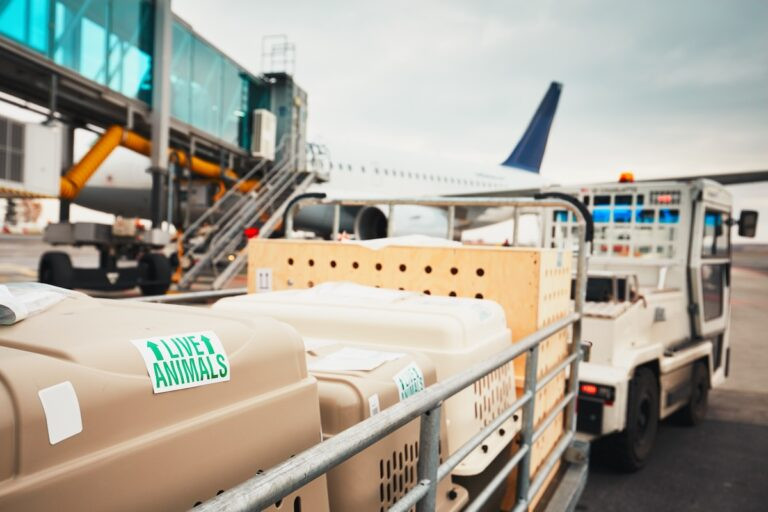In a recent panel discussion at the 50th annual ATA Conference, industry leaders, including Sebastian Cosgrove from Air Canada Cargo, Marco Klapper from Lufthansa Cargo, Anita Kindhauser from Swiss Air and Mirjam Scherer from KLM, gathered to share insights and strategies to improve animals’ safety and welfare during air transportation.
By focusing on working with experienced agents and rigorous screening processes for customers, Air Canada Cargo strives to maintain high standards of care for live animal shipments.
“Preparation is key,” Cosgrove declared. “We liaise with customers, ATA agents, and datapad agents to ensure successful animal movements,” adds Cosgrove, highlighting the airline’s dedication to collaboration and preparation.
Similarly, Klapper emphasised the significance of collaboration with certified agents and adherence to strict standards in animal transportation.
“We have a registration process for our customers, ensuring that only those with expertise and experience can book live shipments,” Klapper explains, underlining the airline’s commitment to partnering with reliable agents.
Adding to the discussion, Scherer addressed the challenges posed by varying aircraft specifications and the need for consistent standards across the industry.
“We are dedicated to ensuring that animals are treated with care and respect throughout their journey,” states Scherer, emphasising KLM’s focus on training, accountability, and collaboration with industry organisations.
Challenges and innovations in animal transportation
The panellists dived into key industry challenges, including documentation requirements, temperature control, and the need for global consistency in aircraft specifications.
Underscoring the importance of digitisation in managing documentation and reducing clearance delays, Cosgrove highlighted: “We have integrated digitisation into our processes to streamline documentation and ensure timely clearances.”
Klapper pointed to the role of standardised reporting and internal accountability systems in addressing challenges: “We have a quality observation report that requires consistent information on every incident,” explains Klapper, emphasising Lufthansa Cargo’s commitment to accountability and continuous improvement.
Scherer highlighted the need for greater awareness and education among passengers and travel agencies regarding the importance of animal welfare standards: “As an industry, we must work together to educate customers and ensure they understand the importance of animal welfare during transportation.”
As the industry evolves further, all participants were clear that collaboration and innovation will be critical in advancing animal welfare standards in air cargo transportation, with each committing to working with industry organisations, regulatory bodies, and stakeholders to address emerging challenges and implement best practices.
“By fostering collaboration and sharing best practices, we can collectively elevate animal welfare standards in the air cargo industry,” Cosgrove concluded, highlighting the importance of industry-wide cooperation.



